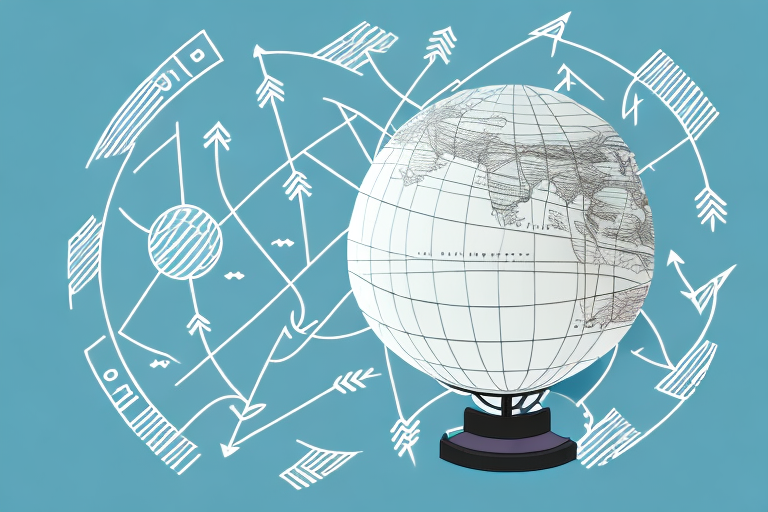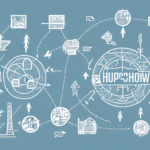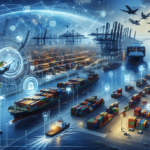Understanding Customs Value Updates in International Trade
The landscape of international trade is intricate, influenced by a myriad of factors that shape the movement of goods and services across borders. A pivotal element that importers and exporters must grapple with is customs value. This value determines the monetary worth of a shipment, serving as the basis for calculating customs duties and taxes. Customs Value Updates (UPs) refer to adjustments in the regulations and methodologies used to assess this value. According to the World Trade Organization (WTO), accurate customs valuation is crucial for ensuring fair trade practices and generating necessary revenue for governments. This article provides an in-depth analysis of Customs Value UPs in international trade, covering definitions, influencing factors, calculation methods, common misconceptions, governmental roles, business impacts, strategic approaches, and future trends.
Definition and Significance of Customs Value
Customs value is the aggregate cost of a shipment, including the price of the goods, shipping fees, insurance charges, and any other expenses directly related to bringing the goods to the importing country's border. Accurate determination of customs value is essential as it directly affects the amount of duties and taxes levied by customs authorities. For instance, misvaluation can lead to significant revenue losses, as highlighted in a study by EconomicsForum.
Importance of Customs Value Updates in Trade
Updates to customs value regulations can profoundly impact the cost structure of international trade. For example, a report by the U.S. Trade Representative indicated that changes in valuation methods can alter duties by up to 5% on average, affecting the final price of products in the destination market. These updates also impose compliance challenges, requiring businesses to adapt to new documentation and valuation requirements to avoid penalties and ensure smooth cross-border transactions.
Factors Influencing Customs Value Updates
Economic Factors
Economic indicators such as currency exchange rates, inflation, and changes in the costs of raw materials and labor can influence customs value UPs. For instance, a depreciation in the importing country's currency can increase the customs value, as observed in the 2022 economic fluctuations reported by the International Monetary Fund (IMF).
Regulatory Environment
Governments periodically review and revise customs regulations to adapt to changing economic and political landscapes. New trade agreements, shifts in trade policy, or responses to economic crises can lead to significant updates in customs valuation methods and requirements. For example, the implementation of the USMCA (United States-Mexico-Canada Agreement) has introduced new valuation adjustments, enhancing the precision of customs duties as discussed in the official USMCA documentation.
Market Competition
The level of competition within a particular market sector can also impact customs value UPs. In highly competitive markets with numerous suppliers, customs values may be adjusted to reflect competitive pricing, whereas in markets with limited suppliers, higher customs values may be set due to reduced competitive pressure. Data from the World Bank shows that competitive markets tend to have more dynamic customs valuation practices.
Calculating Customs Value
Valuation Methods
Customs authorities typically use one of several methods to determine the customs value of a shipment:
- Transaction Value Method: Based on the actual price paid or payable for the goods when sold for export to the importing country. This is the preferred method under the WTO Customs Valuation Agreement.
- Computed Value Method: Calculated based on the cost of production, including materials, labor, and an amount for profit. This method is used when transaction value is unreliable or unavailable.
- Deductive Value Method: Derived from the resale price of the goods in the importing country, deducting costs incurred after importation. This approach is typically employed when neither the transaction value nor computed value is feasible.
Each method has specific rules and suitability depending on the nature of the goods and the available information.
Country of Origin and Free Trade Agreements
The country of origin plays a crucial role in determining customs value, especially when free trade agreements (FTAs) are in place. FTAs can provide for reduced or zero tariffs on goods originating from member countries, thereby affecting customs value adjustments. Businesses must ensure accurate declaration of the country of origin to benefit from applicable trade agreements. The WTO regional trade agreements offer guidelines on how FTAs influence customs valuations.
Common Misconceptions and Compliance
Misconceptions about Customs Value Updates
One prevalent misconception is that undervaluing goods can help businesses evade customs duties and taxes. This practice is illegal and can lead to severe penalties, including fines and shipment seizures, as enforced by agencies like the U.S. Customs and Border Protection (CBP). Another misconception is the belief that customs value UPs only affect large enterprises, whereas, in reality, businesses of all sizes must adhere to customs valuation regulations.
Staying Compliant with Customs Regulations
Ensuring compliance with customs regulations involves maintaining accurate records, understanding applicable valuation methods, and staying updated on regulatory changes. Businesses can leverage technology solutions, such as automated compliance software, and engage with customs brokers or consultants to navigate complex customs requirements effectively. The ShipScience Compliance Solutions offer tools and services to assist businesses in maintaining adherence to customs standards.
Impact on Import and Export Businesses
Cost Implications
Changes in customs value UPs can directly influence the cost of importing or exporting goods. For instance, an increase in the customs value can lead to higher duties and taxes, thereby raising the overall cost of goods sold. Conversely, favorable customs value adjustments can reduce costs and enhance competitiveness in the global market. According to a Trade.gov report, approximately 40% of import costs are affected by customs duties and taxes.
Strategic Competitiveness
Customs value UPs can affect a company's competitiveness by altering the price point of its products in foreign markets. Businesses must strategically manage their supply chains and pricing models to mitigate the impact of unfavorable customs value changes and capitalize on beneficial adjustments. Effective customs valuation can lead to improved market positioning and increased profitability.
Government's Role in Setting Customs Values
Regulatory Framework
Governments establish the regulatory frameworks that define how customs values are determined. This includes setting the valuation methods, outlining required documentation, and enforcing compliance standards. The International Customs Organization (WCO) provides guidelines to ensure consistency and fairness in customs valuation practices globally.
Preventing Under or Over-Valuation
One of the primary objectives of regulating customs values is to prevent the under-valuation or over-valuation of goods. Under-valuation can lead to revenue loss for governments, while over-valuation can increase the cost burden on importers. By setting clear guidelines and conducting regular audits, governments aim to maintain accurate and fair customs valuation practices. The OECD provides frameworks and best practices to assist countries in preventing valuation discrepancies.
Strategies for Managing Customs Value Updates
Supply Chain Diversification
Diversifying suppliers and sourcing from multiple countries can help businesses mitigate risks associated with customs value UPs. By spreading procurement across different regions, companies can reduce dependency on a single market and potentially benefit from varied customs valuation regulations. The World Trade Monitor highlights the advantages of diversification in enhancing supply chain resilience.
Leveraging Technology and Expertise
Investing in advanced compliance technologies and partnering with customs brokers or consultants can enhance a company's ability to navigate complex customs valuation processes. These tools and expertise enable businesses to streamline documentation, maintain accurate records, and promptly respond to regulatory changes. ShipScience Technology Solutions offer platforms that integrate customs valuation compliance seamlessly into business operations.
Proactive Engagement with Customs Authorities
Establishing proactive communication channels with customs authorities can facilitate better understanding and compliance with customs value UPs. Engaging in dialogue and providing comprehensive documentation can aid in clarifying valuation issues and negotiating favorable outcomes when necessary. The Global Trade Alliance recommends regular consultations with customs officials to stay abreast of regulatory changes.
Future Trends and Predictions for Customs Value Updates
As global trade dynamics evolve, customs value UPs are expected to continue adapting to new economic realities and technological advancements. Potential future trends include the increased use of electronic data interchange (EDI) for customs declarations, the incorporation of blockchain technology for enhanced transparency, and the alignment of customs valuation methods with international standards such as those outlined by the World Trade Organization (WTO). Businesses must remain vigilant and proactive in monitoring these trends to stay compliant and maintain a competitive edge in the international marketplace.






















